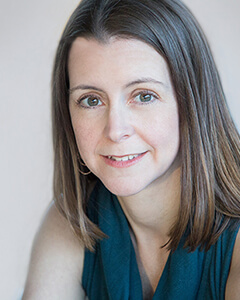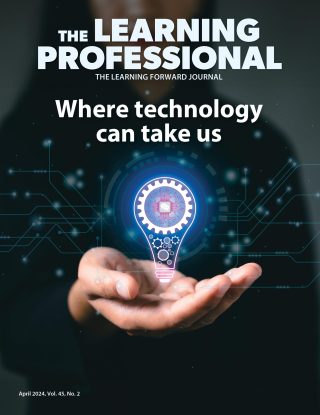FOCUS
When it comes to understanding students, we are always learners
By Suzanne Bouffard
October 2023
The great promise of public schools is that they serve all children equitably and effectively. Doing so is essential and complex because students’ needs are so diverse. Ideally, educators have a broad knowledge base and skill set for meeting learners’ needs from Day One in the classroom. But it’s also vital to have opportunities, methods, and habits for continuing to learn because student needs evolve and educators’ positions change.
This issue of The Learning Professional focuses on students with complex learning needs that have not always been met fully. We spotlight students with a range of disabilities, diagnoses, and learning needs. While the articles don’t represent the full spectrum of diverse learning needs that students bring to school, the professional learning lessons within them can be applied to many situations.
The term “learners,” rather than “students,” is intentional because all teachers need support to reach all students. Both special education teachers and general education teachers need opportunities to increase their knowledge about and practices for helping students with disabilities succeed. Special educators tell us they want more professional learning tailored to their roles and their students and more time to share their expertise with and co-plan with general education teachers. We know that many general education teachers have little background in working with students with disabilities, yet two-thirds of those students spend 80% or more of their time in general education classrooms (National Center for Education Statistics, 2023).
This issue includes articles about professional learning for educators in both of those roles. For example, Alexa Quinn and colleagues write about a project that helped general education teachers use research-backed practices for students with math disabilities, and Amanda Morin and Emily Kircher-Morris share recommendations for making all classrooms welcoming to neurodiverse students. Homing in on special education teachers’ needs, Denise Heppner reports on preservice special educators’ areas of interest and need, and Dana Curton and Laura Hess share how their district has bolstered the skills of novice special education teachers enrolled in alternative certification pathways.
A note about terminology: Authors in this issue use different terms to refer to focal students and teachers. As we have done with other topics, The Learning Professional honors authors’ expertise, and we acknowledge that they write about a range of contexts and from varying positionality. For example, many authors use the term students with disabilities, as we do in our own writing for this issue, in accordance with guidance from the National Center on Disability and Journalism (2021). But the issue also uses terms like special education and special educators, in keeping with the terminology used in many schools and by the U.S. Department of Education.
The strategies and recommendations in this issue are meant to be part of a comprehensive professional learning approach. Such an approach can bring together the instructional, relational, and environmental factors it takes for all teachers to support all students. As Frederick Brown, Learning Forward CEO, writes on p. 8, see article here. “A systemwide commitment to high-quality professional learning is the best route to ensure educational equity for students with disabilities and all students.”
Download pdf here.
References
National Center for Education Statistics. (2023, May). Students with disabilities. U.S. Department of Education, Institute of Education Sciences. nces.ed.gov/programs/coe/indicator/cgg/students-with-disabilities
National Center on Disability and Journalism. (2021, August). Disability language style guide. Walter Cronkite School of Journalism and Mass Communication, Arizona State University. ncdj.org/style-guide/

Suzanne Bouffard is senior vice president of communications and publications at Learning Forward. She is the editor of The Learning Professional, Learning Forward’s flagship publication. She also contributes to the Learning Forward blog and webinars. With a background in child development, she has a passion for making research and best practices accessible to educators, policymakers, and families. She has written for many national publications including The New York Times and the Atlantic, and previously worked as a writer and researcher at the Harvard Graduate School of Education. She has a Ph.D. in developmental psychology from Duke University and a B.A. from Wesleyan University. She loves working with authors to help them develop their ideas and voices for publication.
Recent Issues
EVALUATING PROFESSIONAL LEARNING
February 2024
How do you know your professional learning is working? This issue digs...
TAKING THE NEXT STEP
December 2023
Professional learning can open up new roles and challenges and help...
REACHING ALL LEARNERS
October 2023
Both special education and general education teachers need support to help...
THE TIME DILEMMA
August 2023
Prioritizing professional learning time is an investment in educators and...











